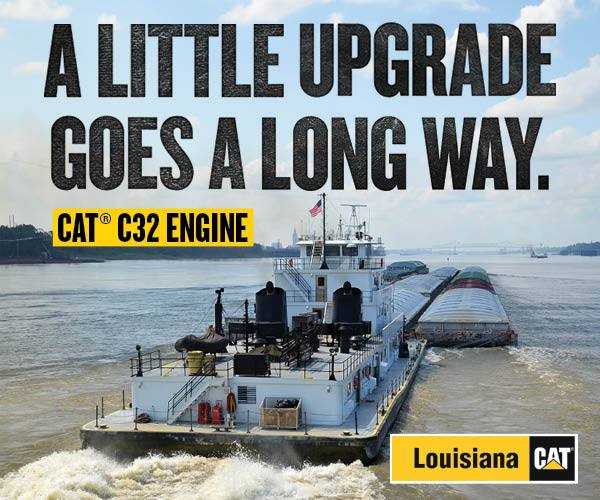Seamen’s Church Institute Continues Outreach To Mariners With Resilience Crews
Working on a towing vessel or elsewhere in the maritime industry—or having a loved one who does—has never been easy. Oftentimes, mariners spend two, three or four weeks away from home at a time, with life at home continuing to unfold in their absence. At the same time, mariners work in difficult and often dangerous situations as they transport goods vital to the nation and the world.
And for the past six months, mariners have continued to do so in the midst of the COVID-19 pandemic, with all the restrictions and worries associated with it.
While Seamen’s Church Institute’s river chaplains have had a harder time the past six months making regular vessel visits due to the virus, leaders from SCI’s Ministry on the Rivers & Gulf have been developing a way for mariners and their colleagues working ashore to connect with each other and a river chaplain remotely.
SCI is calling the once-a-week virtual meetups “resilience crews.” The gatherings allow participants a chance to connect with others, while also sharing their own concerns or experiences. The purpose of resilience crews is to promote wellness for the whole person, particularly heart health (relationships and emotions), mind health (including attitude toward a person’s job), strength (as it relates to body health and resiliency) and care for the soul (including rest and play). Groups meet for one to two months for about an hour at a time. Due to COVID-19 restrictions and the far-flung nature of the maritime industry, the groups meet on Zoom.
SCI launched its resilience crews mainly among women either working shoreside or who have loved ones in the industry. Leading those resilience crews have been river chaplain associate Bernadette St. Amand and longtime chaplain and captain Joy Manthey.
SCI’s Rev. Tom Rhoades, chaplain for the Lower Mississippi, Gulf Coast and Houston area, said anyone interested in joining a future resilience crew or leading one can email wellness@seamenschurch.org.
Rhoades, a former crew member aboard a towing vessel, said the resilience crews are meant to be an outgrowth of the safety mindset of the industry as a whole.
“When I started towboating in 2008, I noticed a strong emphasis on safety,” Rhoades said. “My company was making changes that I thought were making towboating more safe. For instance, I trained fifteen days before getting on a line boat.
“But as a chaplain,” he said, “I attend too many suicides, and human error critical incidents from a lack of focus. Because the nature of our work is always dangerous, we live amid intense day-to-day stress that takes its toll in deteriorating the quality of our lives. To cope with this stress some of us have great habits that keep us mentally healthy, but many of us do not have good habits in coping with stress.”
Thus, the mental and emotional health of crew members has very real implications for the safe operation of a towing vessel, much like safety training.
“My hope and prayer is that we can become an industry deeply effective in cultivating a better sense of well-being and mental health,” Rhoades said. “The ultimate goal for SCI is to help integrate whole-person well-being into our lives. We want to provide resources for HR and Health and Safety. More importantly, we want to provide opportunities to grow in wellness through small groups.
“In Resilience Crews,” he said, “we help one another change in positive ways so that we become more sound in our hearts, minds, bodies and spirits; experience more joy in living our lives; and work more safely.”



